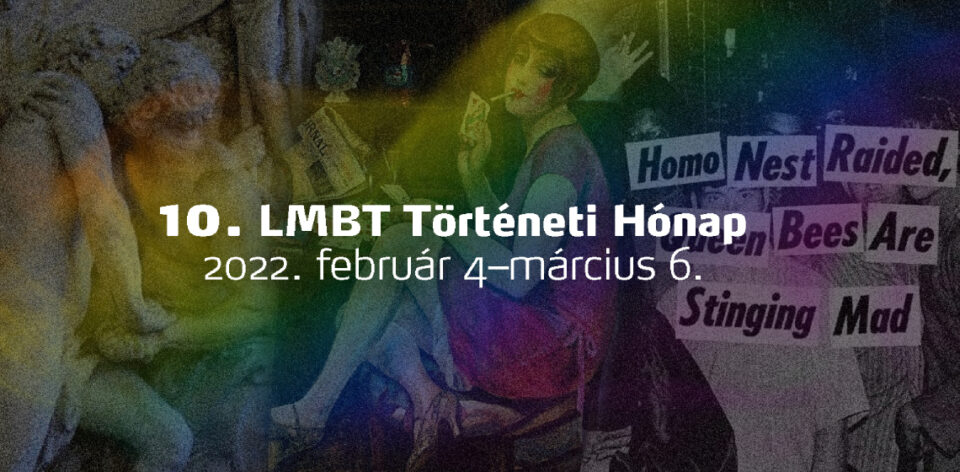Organized by Hatter Society, Labrisz Lesbian Association, and Szimpozion Association, the free programs are sheduled from February 4 to March 6 in several cities across the country and online. The main focus of the event – organised for the tenth year in a row in 2022 – is to present the history of the international and domestic LGBTQI community to visitors.
This year, spectators can choose from almost 45 Hungarian or English language programs organised in Budapest, Szeged and Debrecen. Experts, psychologists, activists and historians are going to speak about topics such as the beginning of Hungarian trans activism, the history of AIDS in the Hungarian press and the mysterious figure of Minka Czóbel in literature or this year’s 15th anniversary of introducing the institution of civil partnership. In addition to interactive events, various films, typically featuring homosexuality, will be screened at the venues. This year’s Historical Month is focusing on Records Uncovered 2.0: LGBTQI+ Stories in Central and South-Eastern Europe, and several guests from neighboring countries are going to talk about how LGBT activism developed in the Eastern Bloc in the second half of the 20th century. The detailed program list is available on the event’s website, lmbttortenetihonap.hu.
Speaking at the opening ceremony, Mária Takács, the organizer of the LGBT Historical Month, emphasized: “There has been a harmful ideology in Hungary since last year: it is forbidden to deviate from the biological gender, change sex or promote and display homosexuality. If I exist, I am visible and I display my identity. When I talk about myself, do I promote homosexuality? It is dangerous if neither we nor our peers can tell or find out what the reality is. Because it’s the school’s job to prepare us for reality. Love, sex, all kinds of families, all kinds of teachers and principals. It is precisely because of silence and invisibility, the so-called child protection act is not only harmful for children but also for society. If we don’t research and archive memorable moments in our history, if we don’t protest against our exclusion, no one will do it for us. This is also our important task: to pass on our knowledge to the following generation.”
The documentary Out in East Berlin was presented at the opening of the event. Filmmaker Jochen Hick said the following before the screening. “If we didn’t document and tell our own history, whom could we expect it from? We know if something doesn’t appear in a movie today, or in photos at least, that thing doesn’t exist for many. I feel it is my duty to present and take these memories to as many places as possible. ”
The tenth anniversary is celebrated only in Hungary, the United States held the first LGBT History Month in 1994. Other countries later followed the example, including Hungary in 2013. In recent years, nearly sixty organizations and groups, as well as numerous speakers, have contributed to the Hungarian event.
Translated by Emese Balog

